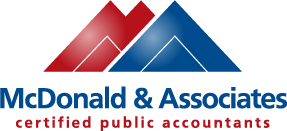The Art of Bill Paying
Paying bills is an inevitable part of everyday life, but that doesn’t mean it has to be stressful. Here are some ways to get control of your budget and perfect the art of stress-free bill paying.
- Make a budget. Knowing what you are making and what you are spending is essential to proper bill paying. First, find out how much you are making every month and then subtract the static items such as rent or mortgage payments, credit card payments and cell phone expenses. Then, budget out how much you will need for other essentials (such as food and clothing). Once the essentials are accounted for, you can look at the money you have left and decide where to allocate the rest.
- Find a budget tool that works. Create a tracking system that works for you. There are many to choose from, but your bank may have a free app to track your spending, so that is a good place to start. You can then choose which tools to use to make a budget and categorize the transactions to be allocated to a certain part of the budget (such as food, car, and housing).
- Set up autopay. Put recurring bills such as utilities, internet, and your cell phone on autopay so they will be automatically deducted from your account on their due date. If you decide to use autopay, it is still a good idea to look at the amounts being deducted every month to make sure everything is correct.
- Consider your non-regular payments. Don’t forget to account for bills that come due occasionally and plan for the cash outlay. Common examples of this are property tax payments, income taxes, and annual/semi-annual insurance payments. You will need to plan to have enough cash on hand for these expenses when they come due.
- Adjust due dates. Paying bills isn’t as stressful when you know that you can afford to pay them, and what better time to pay bills than right after you get paid! The money will be there and you can pay those bills before that money has a chance to go anywhere else. Consider asking if you can change the due dates for some or all of your bills to correspond with when your paychecks are deposited into your bank account.
- Don’t forget to pay yourself! One of the best ways to start developing a savings account is making yourself part of your budget! Take however much you think you can spare and set up an automatic transfer to a separate savings account. Use this money to establish an emergency fund of approximately six to nine months of expenses. This extra cushion will come in handy if something unexpected occurs.



